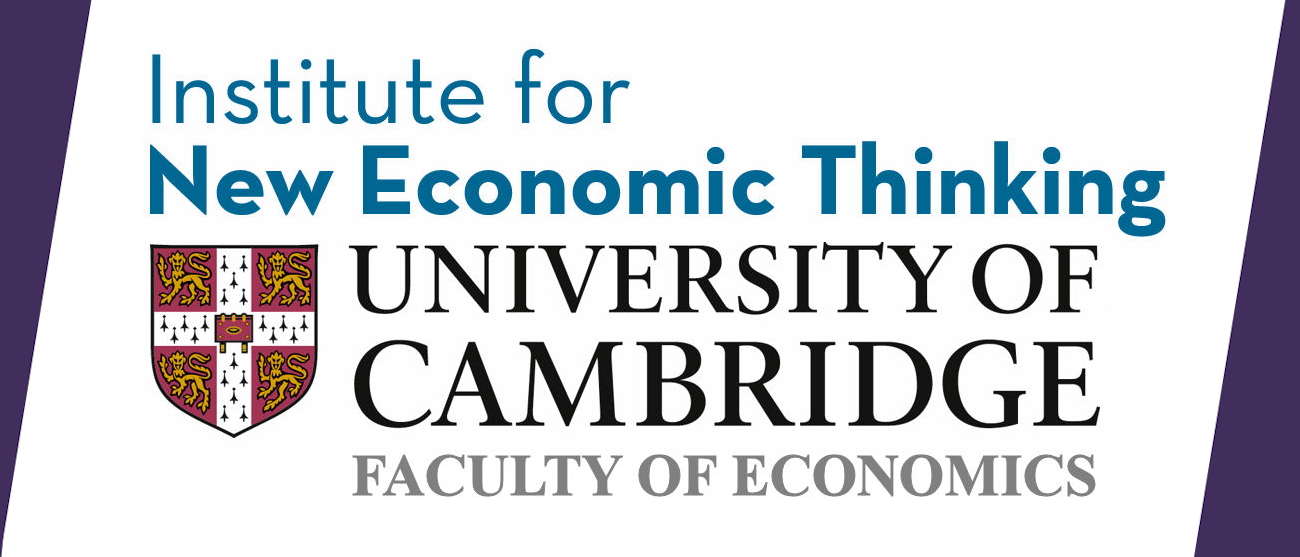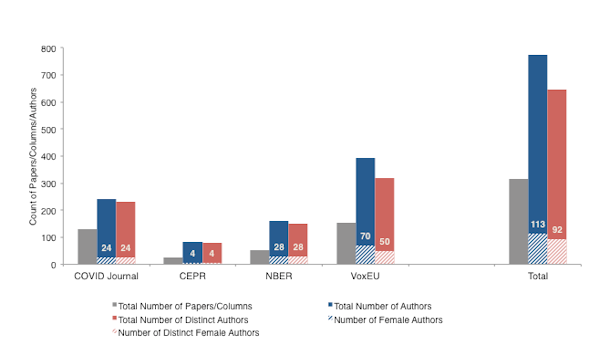Women researchers in economics struggle to catch up with the demand for new COVID-19 related research.
At a time when countries around the world experience dramatic declines in economic activity, the COVID-19 shock offers economists a unique opportunity to study the different economic and social implications of the drastic policy measures that have been introduced to manage the pandemic. Indeed, in the last few months, there has been an incredible burst of activity in economic research, unlike anything we have seen before.
However, not all economists are responding to the big surge in interest and demand for research in relation to COVID-19. We examine patterns of working papers in economics using data from prominent repositories of early research output (NBER Working Papers, CEPR Discussion Papers, CEPR Covid Economics, and VoxEU columns) and find that the productivity of female and more generally mid-career research economists is disproportionately affected by the lock-down measures. It is primarily senior male economists who are currently working on the wide range of economics research questions arising from the COVID-19 shock.
The figure below shows the number of women authors broken down by paper series. As a fraction of all authors, women constitute 17.4% for NBER working papers, 4.8% for CEPR working papers, 10% in papers that were submitted to CEPR Covid Economics (with only 6.8% for papers that have been accepted and published as of 26 April 2020), and 17.8% in VoxEU columns. Removing work that appears in more than one outlet, the proportion of women working on research related to the pandemic is 14.6%, which is well below the 20% of female authors found in normal times in CEPR and NBER working-papers series.
The Number of Women Authors Broken Down by Paper Series
Read the paper in full: The Unequal Effects of Covid-19 on Economists' Research Productivity
This research was featured in the following media outlets:
El Mundo (in Spanish)
Le Monde (in French)
Via Empresa (in Catalan)
Entrepreneur & Innovation Exchange
Public Health NHS Wales (includes report pdf download)
HI Center for Healthcare Innovation Blog

About the authors
Dr Noriko Amano Patino is an University Lecturer at the Faculty of Economics, University of Cambridge. Her research interests are Labor Economics and Applied Econometrics.
Dr Elisa Faraglia is a University Lecturer at the Faculty of Economics, University of Cambridge. Her research interests are Macroeconomic Theory, Fiscal Policy and Debt Management.
Dr Chryssi Giannitsarou is University Reader at the Faculty of Economics, University of Cambridge. Her research interests are Macroeconomic Theory, Macro-Finance, Expectations, Networks.
Zeina Hasna is a PhD candidate in Economics at the Faculty of Economics, University of Cambridge. Her research interests are Macroeconomics, Structural Change, Growth & Inequality, Environment Economics.









